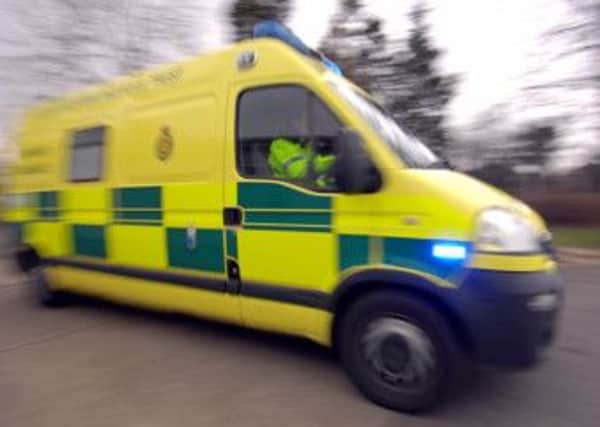Ambulance service for Northamptonshire lost 80,000 hours of service due to staff sickness


A rise in staff absences in Northamptonshire meant that EMAS has spent less time in total responding to calls, losing a total of 80,369 hours over 2014, compared to 61,361 in 2013.
During a meeting with the EMAS Trust Board yesterday, directors explained that recent rises in staff sickness are often linked to stress and correlate to a hike in calls and increased pressure on the ambulance service in general.
Advertisement
Hide AdAdvertisement
Hide AdFigures collected by the Board showed a 45 per cent increase in higher-emergency ‘red’ calls in January this year compared to the same time last year, and a 66 per cent increase in ‘green’ calls, which often include elderly or vulnerable people suffering falls or ongoing illnesses.
EMAS said that staff, unions and managers are working on ways to reduce the amount of additional time off (ATO) that colleagues have, which means any additional/above their annual leave entitlement.
Kerry Gulliver, EMAS’s acting director of workforce and engagement, said: “We have seen a six per cent increase year-on-year in calls in Northamptonshire.
“We have been trying to respond by working on staff absences.”
Advertisement
Hide AdAdvertisement
Hide AdDermot Toberty, non-executive director, added: “Staff are working harder and harder and are being put under more pressure with higher volumes of calls.
“This has led to increased sickness levels, so we must also make sure we are recruiting new staff.”
But issues with staff recruitment were another problem discussed at the meeting, held at University of Northampton’s Park Campus.
Blanche Lentz, general manager of EMAS in Northamptonshire, said: “We currently have 21 vacancies for frontline staff. Filling these would help fill the gaps which have left us struggling to improve performance.”
Advertisement
Hide AdAdvertisement
Hide AdOther measures discussed to reduce pressure on front-line ambulance staff included proper training for volunteer first-aiders and installing “common access” defibrillators in public places, such as supermarkets.